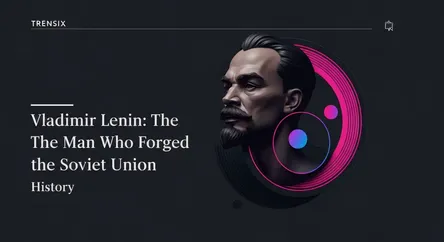History
Vladimir Lenin: The Man Who Forged the Soviet Union

An overview of Vladimir Lenin, the revolutionary leader who founded the Soviet Union and left a complex and divisive legacy on the 20th century.
What is it?
Vladimir Ilyich Ulyanov, better known as Vladimir Lenin, was a Russian revolutionary, politician, and political theorist who lived from 1870 to 1924. He was the founder of the Russian Communist Party (Bolsheviks), the leader of the 1917 Bolshevik Revolution, and the architect of the Soviet state. As the first head of Soviet Russia and later the Soviet Union, he implemented communist ideology based on his interpretation of Marxism, which became known as Marxism-Leninism. His government nationalized land and industry, withdrew Russia from World War I, and established a one-party state.
Why is it trending?
Lenin remains a pivotal and highly controversial figure in modern history. He is often regarded as one of the most significant political leaders of the 20th century, as his actions reshaped Russia and influenced the course of global politics for decades. The establishment of the world's first communist state under his leadership created an ideological and political alternative to capitalist democracies, leading to geopolitical conflicts like the Cold War. His legacy is continuously debated, viewed by some as a champion of the working class and by others as the founder of a brutal dictatorship responsible for mass repression and violence.
How does it affect people?
Lenin's impact was profound and multifaceted. For millions in Russia and beyond, his revolution initially promised "peace, land, and bread," aiming to liberate the working class from aristocratic and capitalist exploitation. However, his regime also oversaw immense suffering, including the Red Terror, a campaign of political repression, and devastating famine. The totalitarian state model he established was later intensified by his successor, Joseph Stalin, leading to millions more deaths. Globally, Lenin's ideas inspired communist movements and revolutions, altering societies in Eastern Europe, Asia, and other parts of the world, and defining a central conflict of the 20th century.